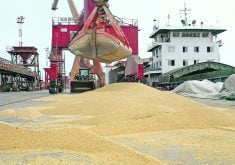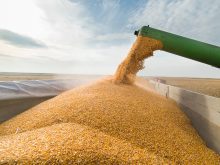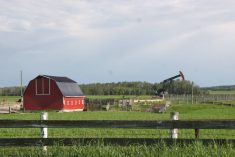American legislators took a risk in 1995 and made big changes to long-standing farm programs.
They marked the result with a grand name: Freedom to Farm.
In 2001, U.S. legislators are writing another farm bill that will go into effect in the 2003 crop year. It might be called Back to the Future.
So far, there is much that is old, little new and the only things blue are Canadian farmers who will continue to see market-insulated American farmers producing surplus crops.
Freedom to Farm was a landmark, introducing cropping choice to American farmers and reducing safety nets.
Read Also

Flax sector sees omega-3 opportunity
SASKATOON — A global shortage of omega-3 oils could be an opportunity for the flax sector, says an industry official….
It was a product of its times, the mid-1990s, when a series of poor harvests and fast growing Asian demand combined to lower stocks and boost prices. It looked like agriculture had turned the corner.
But they were wrong.
The high prices spurred more production just as the Asian currency crisis of the late 1990s slowed demand.
Surpluses increased as most of the world enjoyed a string of excellent harvests.
Grain prices fell and congress felt the fury of the American farm lobby.
Chastened, congress couldn’t fill up the buckets of emergency aid fast enough year after year, pushing overall farm spending to new heights.
This time, legislators are determined to restore safety nets. The House of Representatives introduced its draft bill last week.
It retained the popular planting flexibility and loan deficiency payments. But it went back to pre-1995 bills for a safety net. Called the target price, it would top up market returns and other government subsidies to reach a government set price goal.
The Democratic-dominated Senate bill will probably introduce an even sweeter draft bill.
The Americans also seem set on expanding the range of subsidy programs to include pulse crops that have been the bread and butter for many Canadian producers in recent years.
While other countries bluster from the sidelines about the disruptiveness of American farm subsidies, Brazil is the one country that seems prepared to do something.
It is considering launching a case at the World Trade Organization to reign in U.S. farm subsidies.
As Canada found in the recent beef and aircraft rows, the South American country is a tenacious opponent.
Canada should think about supporting Brazil in its challenge.
We’d win some Brazilian friends and needle the Americans to walk the walk on farm subsidy reduction, instead of just talking.














